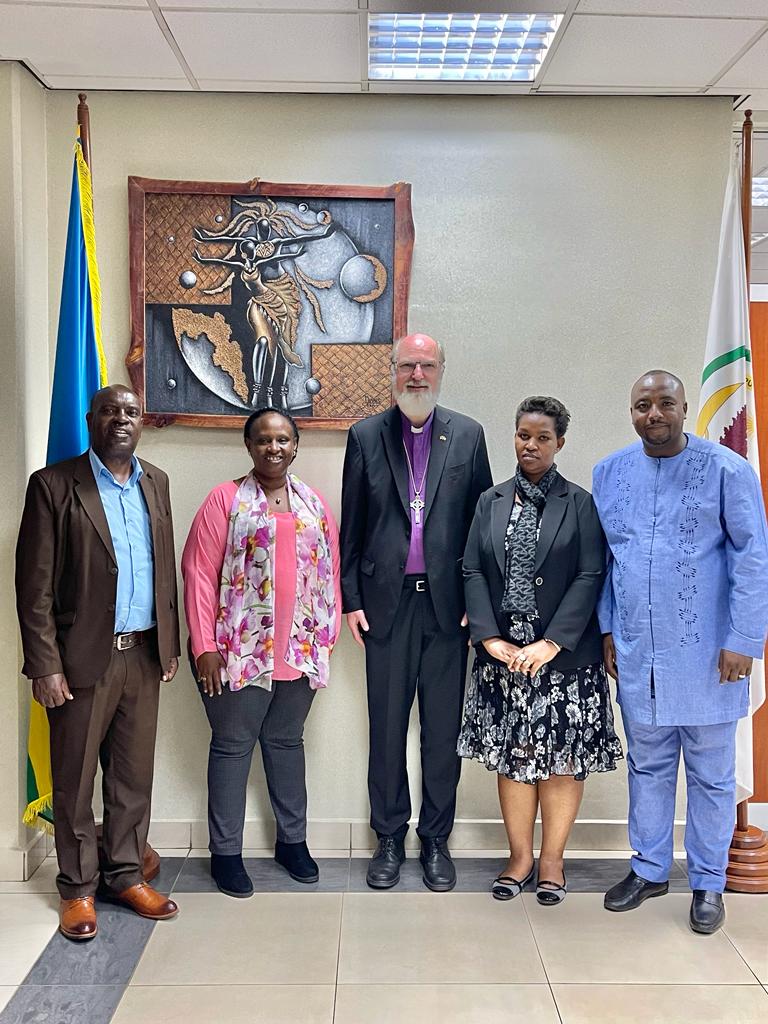The idea that God loves humanity despite its sinfulness is a central tenet in many religious traditions, particularly within Christianity. This concept is often discussed in theological and philosophical terms. Here are some key points that explain why God is believed to love humans despite their sins: Unconditional Love: God’s love is often described as unconditional, meaning it is not based on human behavior or worthiness. This concept of unconditional love suggests that God’s love does not depend on our actions or moral state but is a fundamental aspect of God’s nature. Divine Nature: In Christian theology, God’s nature is inherently loving. The First Epistle of John in the New Testament states, “God is love” (1 John 4:8). This means that love is not just an action God performs, but an essential part of God’s being. Grace and Mercy: God’s love is expressed through grace and mercy. Grace refers to the unearned and undeserved favor of God, while mercy refers to God’s compassion and forgiveness towards humanity. The Christian doctrine of grace emphasizes that salvation and divine favor are gifts from God, not earned by human deeds. Redemptive Purpose: Many religious traditions, especially Christianity, teach that God has a redemptive plan for humanity. Despite human sinfulness, God seeks to restore the relationship between humanity and the divine. In Christianity, this is exemplified through the life, death, and resurrection of Jesus Christ, who is believed to have atoned for human sins. Covenant Relationships: The concept of covenant in the Bible shows that God establishes and maintains a relationship with humanity despite their imperfections. Covenants, like those with Noah, Abraham, and Moses, illustrate God’s commitment to humanity even when they fail to uphold their end of the relationship. Forgiveness and Reconciliation: Forgiveness is a significant aspect of many religious teachings about God’s love. In Christianity, for example, Jesus’ teachings emphasize the importance of forgiveness, mirroring God’s readiness to forgive human sins. The Lord’s Prayer includes a plea for forgiveness, reflecting the belief that God is willing to forgive those who repent. Human Potential and Worth: Some theological perspectives hold that God’s love for humanity is rooted in the inherent worth and potential of human beings. Despite sin, humans are seen as created in the image of God (imago Dei), possessing intrinsic value and the capacity for good. Parental Love: God’s love is often compared to that of a parent’s love for their child. Just as a loving parent continues to love and care for their child despite the child’s mistakes, God is believed to love humanity with a similar enduring and nurturing love. These points collectively illustrate the theological perspective that God’s love for humanity transcends human sinfulness, offering forgiveness, grace, and a path to redemption. This belief provides a foundation for hope, moral striving, and a sense of worth in many religious traditions
Alliance Evangelique au Rwanda visits RGB
We are happy for a visit of AER to RGB for a better collaboration! AER is working Legally in Rwanda and we are Happy for a better collaboration with the government of Rwanda.
The Genealogy of Jesus the Messiah
1 This is the genealogy[a] of Jesus the Messiah[b] the son of David, the son of Abraham: 2 Abraham was the father of Isaac, Isaac the father of Jacob, Jacob the father of Judah and his brothers, 3 Judah the father of Perez and Zerah, whose mother was Tamar, Perez the father of Hezron, Hezron the father of Ram, 4 Ram the father of Amminadab, Amminadab the father of Nahshon, Nahshon the father of Salmon, 5 Salmon the father of Boaz, whose mother was Rahab, Boaz the father of Obed, whose mother was Ruth, Obed the father of Jesse, 6 and Jesse the father of King David. David was the father of Solomon, whose mother had been Uriah’s wife, 7 Solomon the father of Rehoboam, Rehoboam the father of Abijah, Abijah the father of Asa, 8 Asa the father of Jehoshaphat, Jehoshaphat the father of Jehoram, Jehoram the father of Uzziah, 9 Uzziah the father of Jotham, Jotham the father of Ahaz, Ahaz the father of Hezekiah, 10 Hezekiah the father of Manasseh, Manasseh the father of Amon, Amon the father of Josiah, 11 and Josiah the father of Jeconiah[c] and his brothers at the time of the exile to Babylon. 12 After the exile to Babylon: Jeconiah was the father of Shealtiel, Shealtiel the father of Zerubbabel, 13 Zerubbabel the father of Abihud, Abihud the father of Eliakim, Eliakim the father of Azor, 14 Azor the father of Zadok, Zadok the father of Akim, Akim the father of Elihud, 15 Elihud the father of Eleazar, Eleazar the father of Matthan, Matthan the father of Jacob, 16 and Jacob the father of Joseph, the husband of Mary, and Mary was the mother of Jesus who is called the Messiah. 17 Thus there were fourteen generations in all from Abraham to David, fourteen from David to the exile to Babylon, and fourteen from the exile to the Messiah. Joseph Accepts Jesus as His Son 18 This is how the birth of Jesus the Messiah came about[d]: His mother Mary was pledged to be married to Joseph, but before they came together, she was found to be pregnant through the Holy Spirit. 19 Because Joseph her husband was faithful to the law, and yet[e] did not want to expose her to public disgrace, he had in mind to divorce her quietly. 20 But after he had considered this, an angel of the Lord appeared to him in a dream and said, “Joseph son of David, do not be afraid to take Mary home as your wife, because what is conceived in her is from the Holy Spirit. 21 She will give birth to a son, and you are to give him the name Jesus,[f] because he will save his people from their sins.” 22 All this took place to fulfill what the Lord had said through the prophet: 23 “The virgin will conceive and give birth to a son, and they will call him Immanuel”[g] (which means “God with us”). 24 When Joseph woke up, he did what the angel of the Lord had commanded him and took Mary home as his wife. 25 But he did not consummate their marriage until she gave birth to a son. And he gave him the name Jesus.
The Genealogy of Jesus the Messiah
1 This is the genealogy of Jesus the Messiah[b] the son of David, the son of Abraham: 2 Abraham was the father of Isaac, Isaac the father of Jacob, Jacob the father of Judah and his brothers, 3 Judah the father of Perez and Zerah, whose mother was Tamar, Perez the father of Hezron, Hezron the father of Ram, 4 Ram the father of Amminadab, Amminadab the father of Nahshon, Nahshon the father of Salmon, 5 Salmon the father of Boaz, whose mother was Rahab, Boaz the father of Obed, whose mother was Ruth, Obed the father of Jesse, 6 and Jesse the father of King David. David was the father of Solomon, whose mother had been Uriah’s wife, 7 Solomon the father of Rehoboam, Rehoboam the father of Abijah, Abijah the father of Asa, 8 Asa the father of Jehoshaphat, Jehoshaphat the father of Jehoram, Jehoram the father of Uzziah, 9 Uzziah the father of Jotham, Jotham the father of Ahaz, Ahaz the father of Hezekiah, 10 Hezekiah the father of Manasseh, Manasseh the father of Amon, Amon the father of Josiah, 11 and Josiah the father of Jeconiah[c] and his brothers at the time of the exile to Babylon. 12 After the exile to Babylon: Jeconiah was the father of Shealtiel, Shealtiel the father of Zerubbabel, 13 Zerubbabel the father of Abihud, Abihud the father of Eliakim, Eliakim the father of Azor, 14 Azor the father of Zadok, Zadok the father of Akim, Akim the father of Elihud, 15 Elihud the father of Eleazar, Eleazar the father of Matthan, Matthan the father of Jacob, 16 and Jacob the father of Joseph, the husband of Mary, and Mary was the mother of Jesus who is called the Messiah. 17 Thus there were fourteen generations in all from Abraham to David, fourteen from David to the exile to Babylon, and fourteen from the exile to the Messiah. Joseph Accepts Jesus as His Son 18 This is how the birth of Jesus the Messiah came about[d]: His mother Mary was pledged to be married to Joseph, but before they came together, she was found to be pregnant through the Holy Spirit. 19 Because Joseph her husband was faithful to the law, and yet[e] did not want to expose her to public disgrace, he had in mind to divorce her quietly. 20 But after he had considered this, an angel of the Lord appeared to him in a dream and said, “Joseph son of David, do not be afraid to take Mary home as your wife, because what is conceived in her is from the Holy Spirit. 21 She will give birth to a son, and you are to give him the name Jesus, because he will save his people from their sins.” 22 All this took place to fulfill what the Lord had said through the prophet: 23 “The virgin will conceive and give birth to a son, and they will call him Immanuel”(which means “God with us”). 24 When Joseph woke up, he did what the angel of the Lord had commanded him and took Mary home as his wife. 25 But he did not consummate their marriage until she gave birth to a son. And he gave him the name Jesus.




